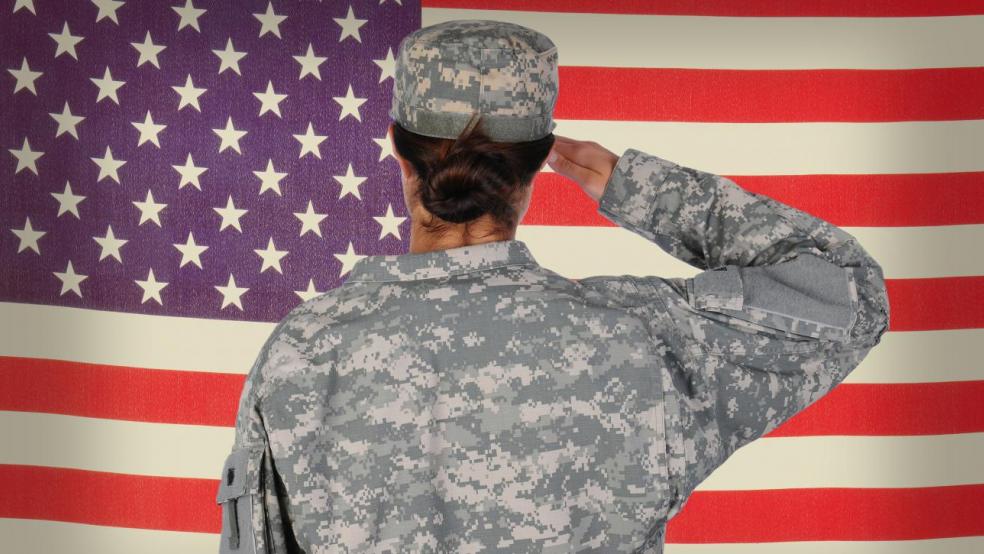Lawmakers have introduced new legislation that would increase spending on veterans’ educational benefits under the GI Bill.
In the wake of the 9/11 terrorist attacks, Congress approved major improvements to the GI bill, paving the way for hundreds of thousands of veterans and their families to obtain undergraduate and graduate college degrees or advanced training to help them find a job.
The so-called Post-9/11 GI Bill, first implemented in August 2009, offers numerous educational benefits.
Related: Why Some Gulf War Veterans Are Being Turned Down for VA Benefits
It covers full tuition and fees at publicly supported colleges and universities and up to $22,805 a year in tuition at a private or overseas college. Veterans are entitled to a monthly housing allowance, up to $1,000 a year for books and supplies, and even a one-time relocation allowance.
The program also permits veterans to transfer unused benefits to a spouse or child.
In fiscal 2015 alone, the Department of Veterans Affairs spent more than $11 billion on education benefits for 790,500 veterans and their families. Total government spending on the Post-9/11 GI Bill is likely to exceed $100 billion over the coming decade.
The program has long been praised by veterans’ organization and Republicans and Democrats alike on Capitol Hill, despite concern about its overall cost and widespread examples of improper payments and waste.
For instance, the Government Accountability Office revealed in October 2015 that the VA made at least $416 million in Post-9/11 GI Bill overpayments in fiscal 2014, involving roughly one in four veteran beneficiaries and about 6,000 universities, colleges and training centers. The overpayments most often occurred when the VA made payments based on a student’s enrollment at the beginning of the school term and the student later dropped one or more classes without notifying the VA.
Related: How the Military Discards Injured Troops and Denies Them Veterans Benefits
Moreover, the VA in the past has not maintained data that systematically tracks retention and graduation rates among students receiving the benefits to better assess the overall impact of the program, according to The Center for Public Integrity.
Even so, Congress is on the verge of approving a major expansion of the program that would add $3 billion to the overall cost over the coming decade. The biggest changes will involve eliminating a 15-year time limit to take advantage of the benefits and boosting funding for thousands in the National Guard and Reserve.
The measure could be approved by the House as early as Wednesday before being sent on to the Senate for final approval this summer. It has been described as part of a sweeping effort by leaders in both parties to fill in “coverage gaps” in the original 2008 legislation in the face of dramatic changes in the job market that have increased the need for more sophisticated technical skills.
Veterans and members of their families would be granted bonus payments if they complete science, technology and engineering courses, according to the Associated Press. For instance, a veteran of the National Guard or Reserve would be in line for $2,300 a year more in tuition than he or she is currently receiving, along with a bigger housing allowance.
Related: The Veterans’ Hospital From Hell Operates in the Heart of the Nation’s Capital
The bill would also eliminate the 15-year deadline for taking advantage of the GI educational benefits, to provide veterans with added flexibility to enroll later in life, depending on their family and employment circumstances. The change would apply only to service members who enlist after the expanded GI Bill takes effect, which is expected to be Jan. 1, 2018.
Finally, the bill would rename the program simply the “GI Bill” to symbolically disengage it from the era of warfare in Iraq and Afghanistan and signal a more permanent status for the benefits.
Charles E. Schmidt, the national commander of the American Legion, whose group drafted the original GI Bill of Rights in 1944, told the AP that "Years from now, veterans who were unable to attend institutions of higher learning during their military service or immediately afterward will be able to earn degrees and begin rewarding careers that can lead our economy.”
The bill surfaced in the House Committee on Veterans’ Affairs last week, and is the handiwork of Rep. Phil Roe (R-TN), the chair, and the ranking Democrat, Rep. Tim Walz of Minnesota, according to media reports. The upbeat, bipartisan effort was in sharp contrast to a major falling out between the two lawmakers several months ago over how to pay for the $3 billion of added benefits and costs.
Related: VA Hospitals Struggling With a Growing Problem: Drug Thefts by Employees
Roe’s original idea in April was to offset the $3 billion by reducing service members’ monthly pay by about $100 per month. He pulled back on the proposal after veterans groups and the Democrats criticized it as an unfair “tax on troops.”
The latest proposal that is likely to fly in both chambers would offset the increased costs by bringing living stipend payments under the GI Bill down to the same level received by active-duty servicemen. Those payments were reduced in 2014 by one percent a year for five years.





